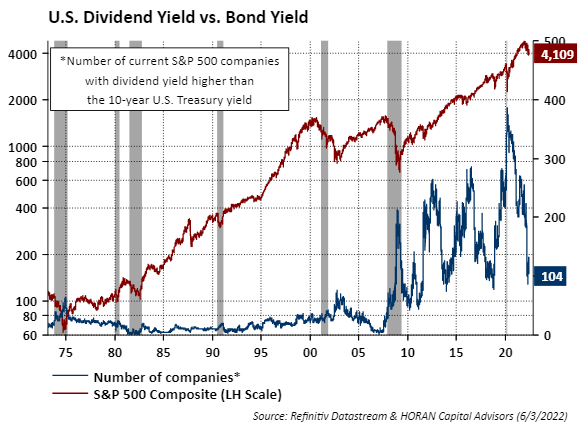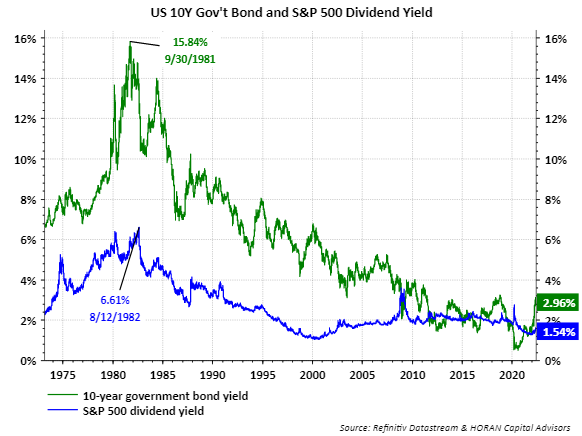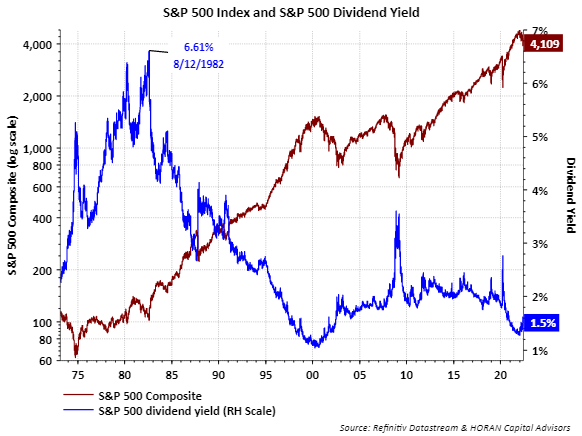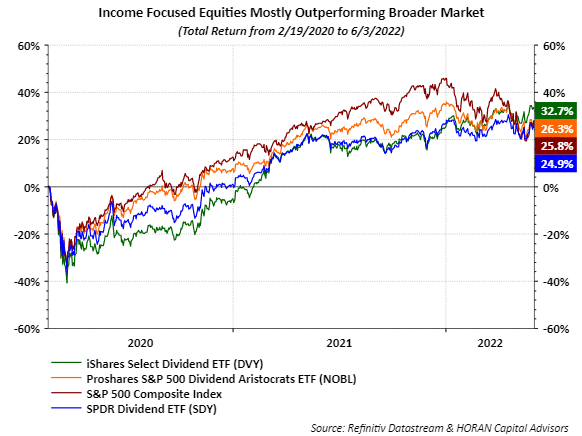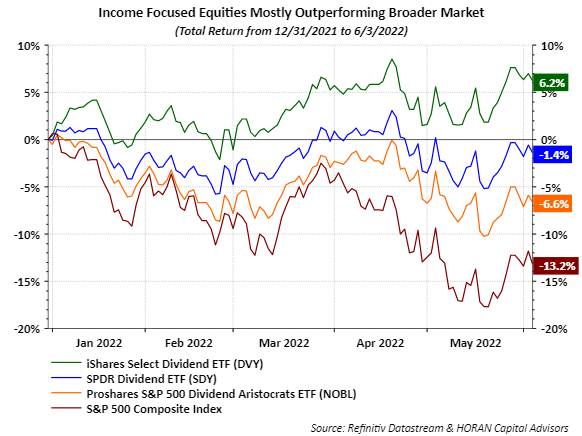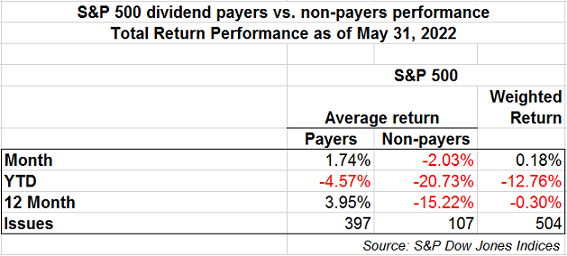Author: David I. Templeton, CFA, Principal and Portfolio Manager
It is no surprise to most investors that the effects of inflation is having a negative impact on some investment asset classes with the consumer price index running at 8.26% versus just 2.28% at the end of 2019. The impact on the economy is broad based, but energy and food are large direct impacts. The average price of all grades of gasoline is now $4.73 per gallon versus $2.63 per gallon at the end of 2019. Many more items are seeing price inflation not seen for 40 or 45 years.
In an effort to address the inflation issue, the Federal Reserve Bank, and most global central banks, has embarked on a rate hiking cycle in an attempt to slow the economy and thus provide some demand reduction that reduces the current level of inflation. The Fed has more direct influence on very short term rates while the market can have greater influence on longer term rates. In fact the 10-year U.S. Treasury yield recently rose above 3% in early May before falling back to 2.95% and this compares to a 10-year yield of 1.92% at the end of 2019. If inflation is expected to be persistent, longer term bond yields will reflect this fact.
The increase in the 10-year US treasury yield has made bonds more competitive from an income standpoint versus the dividend yield of stocks in the S&P 500 Index. As the below chart shows, the number of S&P 500 stocks with dividend yields greater than the 10-year Treasury yield equals 104, down from 218 at the end of 2019.
With bonds providing more competition for stocks might companies place more emphasis on dividends in order to attract investors to a particular company's stock? The last time inflation was at today's level was in the early 1980's. From the mid-1970's to early 1980's inflation was above 10% for a large part of that time period. As seen below the yield on the 10-year U.S. Treasury reached 15.84% in September 1981. The dividend yield on the S&P 500 Index reached 6.61%.
The next chart below shows the dividend yield versus the level of the S&P 500 Index. Most of the higher yield came from dividend growth versus a decline in the price of the S&P 500 Index itself.
If investors believe inflation and higher interest rates are an issue that will impact the market for an extended period of time, dividend paying stocks might provide some relief to the broader market volatility. The next two charts show the performance of some dividend paying ETF's since just before the pandemic in 2020 to June 3, 2022. The second chart represents the year to date performance for the same ETF's.
Lastly, dividend payers are not immune to downturns though. Below is a breakdown of the year to date performance through May 31, 2022 of the dividend payers versus non-payers in the S&P 500 Index. Clearly the payers have a wide performance edge this year, although the average return is down -4.57%. With the pullback in the market to date though, there are companies whose stock prices and dividend yields are more attractive than they have been for some time.
HORAN Capital Advisors, LLC is an SEC registered investment advisor. The information herein has been obtained from sources believed to be reliable but we cannot assure its accuracy or completeness. Neither the information nor any opinion expressed constitutes a solicitation for the purchase or sale of any security. Any reference to past performance is not to be implied or construed as a guarantee of future results. Market conditions can vary widely over time and there is always the potential of losing money when investing in securities. HCA and its affiliates do not provide tax, legal or accounting advice. This material has been prepared for informational purposes only and is not intended to provide and should not be relied on for tax, legal or accounting advice. You should consult your own tax, legal and accounting advisors before engaging in any transaction.


